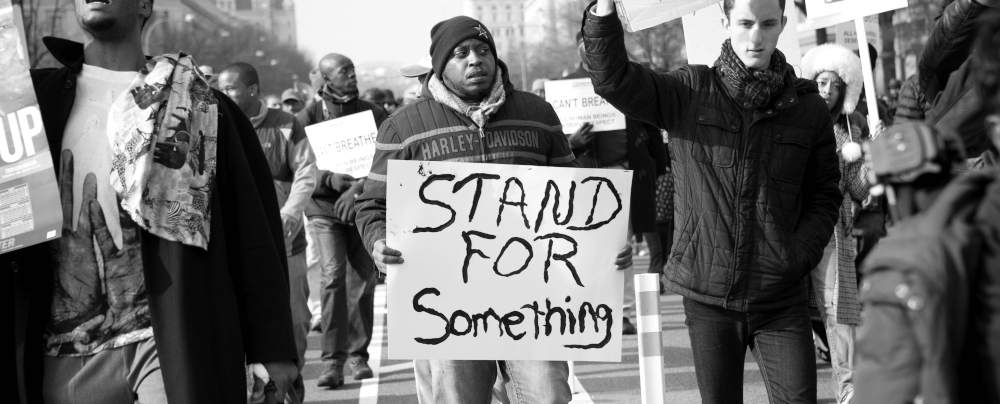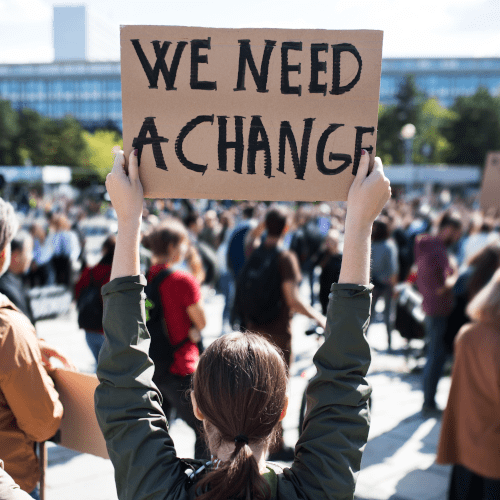"When the stories a society shares are out of tune with its circumstances, they can become self-limiting, even a threat to survival. That is our current situation."
—David Korten, The Great Turning

Stories are the threads that weave together the wisdom of the past. They give form to present values and shape future possibilities. The best stories can open our minds and hearts so that we build empathy and collectively experience moments that we might otherwise miss. A story can change the entire trajectory of a person’s life. That means stories can change the world.
For this reason, we must pay attention to the stories we tell, as well as to those that are told to us. But doing so can be uncomfortable among professionals, in part because it is sometimes difficult to judge their legitimacy. We all tell stories, though. We tell them to ourselves, we tell them to those whom we care for and love, and we tell them through our work. Stories are what connect us as humans. They have helped us to survive and evolve, so we need them like a thirsty person needs water.
Stories are often contested, though, and they can even become deadly when the powerful use them as weapons of oppression. That is why throughout history we see the dispossessed fighting for their own narratives, often placing their lives in peril for a higher purpose—from the secret folk tales shared among enslaved African Americans to the testimonials of tribal elders. All struggles for liberation and justice are, at their root, about people trying to tell their own versions of the past, present, and future.
Right now, we are at a turning point. The COVID-19 pandemic has claimed almost 400,000 lives globally. In the United States, higher fatalities have been recorded among older adults, medically fragile people, and Black, Latino, and Indigenous populations—proving yet again that those who are marginalized often suffer first and worst in disasters. The devastating effects of climate change continue unabated as glaciers shrink, sea levels rise, and temperatures climb. Hundreds of mass protests calling for an end to police brutality and systemic racism have sprung up across the United States following the tragic and unconscionable killings of George Floyd and Breonna Taylor. State-sanctioned violence, civil unrest, rioting, and looting have ensued.
How will historians and future generations look back on this time? How will they judge us for what we did—or did not do—in the face of mounting incivility, inequality, and injustice? What stories will they tell about us?

In their book Active Hope, Joanna Macy and Chris Johnstone assert that there are three stories of our time. The first story, which they refer to as Business as Usual, assumes that things are on the right track and we should carry on with our current patterns of consumption and economic growth. The second story, the Great Unraveling, focuses on the collapse of our ecological and social systems, the depletion of resources, the mass extinction of species, and other disastrous consequences of our current way of being.
In this moment, the Business as Usual story seems something akin to willful ignorance in the face of the clear and present dangers that surround us. On the other hand, viewing current events through the lens of the Great Unraveling is so nightmarish that it can become psychologically paralyzing.
But there is a third story, the Great Turning, and it is one of possibility. The Great Turning requires a shift in our personal consciousness and a change in our behaviors in order to counter the unraveling of our social fabric. It requires collective action to help reconfigure our economic and cultural systems. “In the story of the Great Turning,” Macy and Johnstone write, “what’s catching on is commitment to act for the sake of life on Earth as well as the vision, courage, and solidarity to do so.”
This third story requires a turning away from old practices and systems that no longer work—and which never worked for the poor, for women, or for racial minorities. In the process, we have an opportunity to begin turning toward a more just and sustainable future.
In the hazards and disasters field, we have been turning toward a new story for a good while. The notion that natural hazards losses are inextricably linked to racism, poverty, pollution, and other slow-motion disasters is now widely accepted. The recognition that the disproportionate damage from natural hazards often deepens already existing inequalities has been met by bold calls for embedding justice in our disaster mitigation and recovery policies.
This growing body of work—disaster studies rooted in a vision of justice and equity—acknowledges that our environmental suffering is connected to and worsened by our social suffering. It recognizes that because risk and vulnerability are the outcomes of unequal power relations, that confronting risk will necessarily require confronting power. The logical extension of these insights is that if we want to reduce natural hazards losses we must work just as fervently to reduce economic and social inequality and injustice in all its forms.
These issues, centuries in the making, might seem overwhelming now. But each one of us has a role to play in creating a more just world that we want to live in. Start by asking yourself what you are most concerned about, and then consider how you can bring your skills, talents, and strengths to bear on the problem at hand. Then take the first step forward with the humble recognition that while none of us know how this story will end, this is the way change always begins.
Please take care of yourself and others.
Lori Peek, Director
Natural Hazards Center